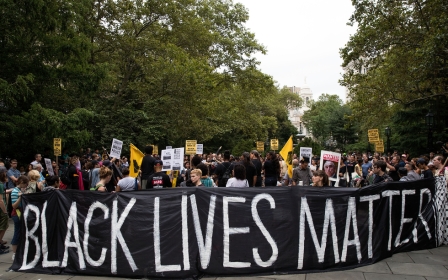Israel defence ministry compares Iran deal to Munich agreement with Nazi Germany

Israel's defence ministry on Friday likened the Iran nuclear deal to the 1938 Munich agreement with Nazi Germany and slammed US President Barack Obama for defending it.
The rebuke came after Obama on Thursday defended the agreement that was sealed in July 2015 between Tehran and six world powers led by Washington.
Obama told reporters that the year-old accord "has worked exactly the way we said it was going to work".
"You'll recall that there were all these horror stories about how Iran was going to cheat and this wasn't going to work and that Iran was going to... finance terrorism and all these kinds of scenarios, and none of them have come to pass," Obama said.
"It's not just the assessment of our intelligence community, it's the assessment of the Israeli military and the intelligence community, the country that was most opposed to this deal that acknowledges this has been a game changer and that Iran has abided by the deal and that they no longer have the sort of short-term breakout capacity that would allow them to develop nuclear weapons," he said.
The agreement saw Tehran accept curbs to its nuclear programme in exchange for a lifting of economic sanctions by world powers.
According to a report published in July by the UN atomic watchdog, Iran is thus far complying with the landmark nuclear deal.
Israel's defence ministry, led by hardliner Avigdor Lieberman, compared the accord to the Munich agreement, which allowed Nazi Germany to annex parts of then Czechoslovakia.
"The Munich agreement did not prevent World War II and the Shoah [Holocaust] because it rested on the hypothesis that Nazi Germany could be a partner to an agreement," it said in a statement.
The defence ministry said the Iran deal was "harmful" and would also fail to stop Iran from developing nuclear weapons.
Tehran "clearly and proudly proclaims that its goal is the destruction of the State of Israel," the ministry said.
It said the defence establishment and the entire Israeli people "understand that such agreements are not useful and undermine the fight without concession against terrorist states like Iran".
Prime Minister Benjamin Netanyahu released a separate statement, reiterating the country's rejection of the deal but stopping short of lambasting Obama.
"While Israel's view on the Iran deal remains unchanged... it firmly believes that Israel has no greater ally than the United States," the statement released by the premier's office said.
"Prime Minister Netanyahu looks forward to further strengthening the alliance between Israel and the United States with President Obama and with the next US administration," it said.
Iranian officials have complained that the US has not lived up to the terms of the deal.
Opponents claim that the US made too many concessions, that it will be much harder to reintroduce sanctions once they have been rolled back, and that several pieces of legislation, including the United States Financial System Protections Act, aim to curb Iran’s ability to participate in global markets. The bill would prohibit the US dollar being used in financial transactions with Iran and uphold Iran’s designation as a money-laundering risk.
The International Atomic Energy Agency (IAEA) report, a second quarterly assessment since the accord came into force on 16 January, showed that Iran "has not pursued the construction of the existing Arak heavy water research reactor" and has "not enriched uranium" above low levels.
The IAEA added that "all stored centrifuges and associated infrastructure have remained in storage under continuous agency monitoring" and no enriched uranium has been accumulated through research and development activities.
Stay informed with MEE's newsletters
Sign up to get the latest alerts, insights and analysis, starting with Turkey Unpacked
Middle East Eye delivers independent and unrivalled coverage and analysis of the Middle East, North Africa and beyond. To learn more about republishing this content and the associated fees, please fill out this form. More about MEE can be found here.




